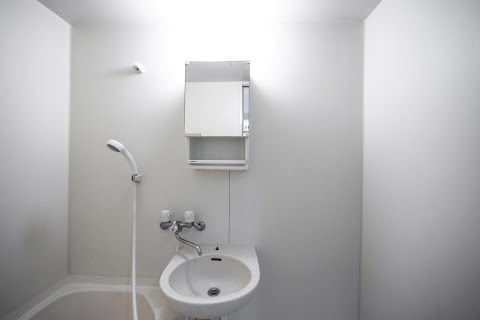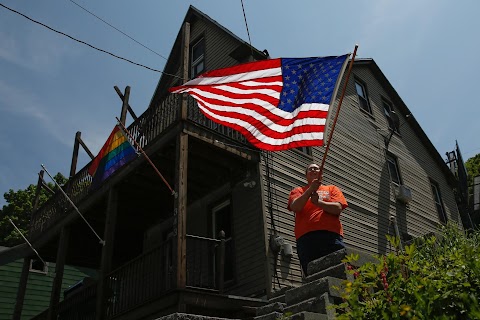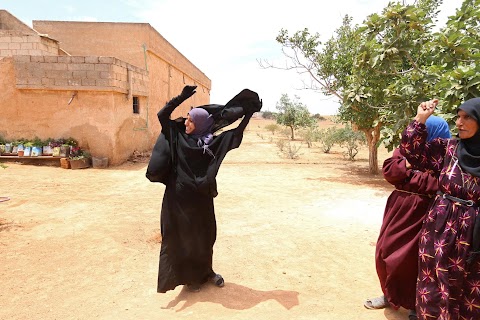
Views, but no vote: Europeans in London
Story
Over three million people who were born in other European Union member states live in Britain. With the exception of Irish residents, they do not have a vote in Thursday's referendum on whether Britain should stay in the EU. However, many feel they have much at stake in the vote. Will they be able to continue to live and work freely in Britain if it chooses to leave? Will their livelihoods be affected? They may not have a say, but they have views.
Paolo Esposito, an Italian national working in financial services, says he has "zero concern" about attitudes towards European residents changing in the event of a Brexit because of the welcoming, cosmopolitan character of London, where he lives.
"I wasn't expecting it to be so easy to settle. From simple things like bureaucracy, which is a lot more straightforward than in Italy, to people's attitudes towards foreigners. Looking back on it, it was less hassle than changing your gym," he says.
"I'm definitely settled, with a ring, a mortgage, a British baby."
Esposito thinks there may be professional consequences from a Brexit, due to the impact on financial services and on the British economy, but says: "If it happens, I'm sure we'll survive the storm."

Story
Freedom of movement within the European Union is not something Raluca Cioroianu takes for granted.
When she was growing up in Communist Romania, it was difficult to travel abroad, but as an adult, after her country joined the EU, she was able to move to Britain where she has built a good life for herself.
Now, with Britons about to vote in a referendum on whether to leave the EU, Cioroianu finds it hard to understand why so many want to leave a club that gives them free access to a whole continent.
"If you were a teenager from the UK, you could just take your passport and go. We couldn't do that."
Cioroianu works as a shop supervisor at a pick-your-own farm on the outskirts of London.
Immigration has been one of the central topics of the EU referendum debate. Those campaigning for a "Leave" vote say the government is powerless to control numbers arriving because of EU freedom of movement rules.
"I came here with good intentions, to work, to pay taxes, to improve my knowledge, my culture, and to make a better life," says Cioroianu. "I'm not ashamed to say that I'm from Romania."

Story
For Catarina Cardoso, a Portuguese academic specialising in climate change who lives in London with her German husband and three children, the EU referendum debate has made a difference to how she feels about being an immigrant.
"Until now we were the same as everyone else, maybe a different accent, but it didn't seem to be an issue," she says.
"Now you don't know whether you're welcome."
The family had not previously considered leaving. They like Britain and its way of life, they are settled at work and at school. "But if Britain exits the EU then I suppose we'll have to think about it," says Cardoso.



Story
Fellow musician Jessie Grimes, an Irish clarinettist, says her time playing with the EU Youth Orchestra a few years ago brought home the advantages of being part of the bloc.
"Being in that orchestra made me feel quite European and understand that unity is important because we had amazing musicians from all over Europe," she says.
Grimes is concerned that a post-EU Britain may have to re-instate border controls between the Republic of Ireland and Northern Ireland, which is part of the United Kingdom. "I can't see that going peacefully," she says, recalling the political violence that blighted Northern Ireland when she was a child.
Grimes also cares about gay rights and says it would be a shame for Britain, which allows gay marriage and adoption, to lose the possibility of influencing less progressive EU nations.
"You can only do good by staying."
Uniquely among non-British EU nationals, Irish citizens living in Britain are allowed to vote in the referendum, and Grimes has cast her postal ballot to remain.



Story
Mihai Marcar, a Romanian waiter at a garden centre restaurant, wants to stay in Britain come what may.
"As soon as I came here, I was in love with the British way of life."
"This 'hello, how are you? Thank you very much', it attracted me very much. This British gentleman style," he says.
Marcar has been dismayed by the negative tone of much of the debate about immigration, particularly from eastern Europe. He feels hard-working, productive people are being unfairly stigmatised because of a minority who are not like that.
"I think there are a lot of people who are here illegally. For me that's the real problem, not the people who are working here, paying taxes, having a normal life."
















